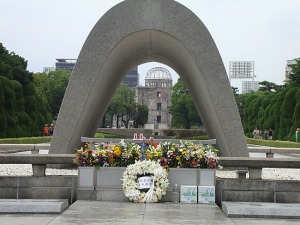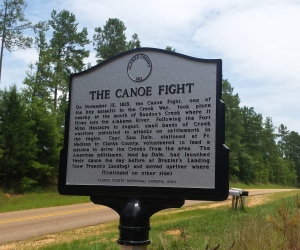A few days ago (August 6 and August 9) were the anniversaries of some of the most profound events in all of world history; the dropping of atomic bombs on the Japanese cities of Hiroshima and Nagasaki during World War II.
I’ve always been surprised that these incredible events receive such little discussion today outside of academia. Even among our relatively historically ignorant public, these events usually register as being an important turning point in world history, and they are frought with potential for moral debate of the type we seem to like in historical dialogue. It strikes me that they should be among those few historical milestones we as Americans should study about and willingly commemorate and remember in some way, such as the Civil War and the Civil Rights Movement. But the unleashing of the atomic bomb by the United States seems to be barely a blip on the radar of our collective historical conscious.

To me, the dropping of the bombs stand out as some of the most astounding occurrences in all of human history and the defining events of the twentieth century on the global stage. In two solitary blasts, the United States military destroyed two major cities and killed upwards of 200,000 people. In these cities were strategic military targets, but literally hundreds of thousands of men, women, and children could not help but be caught in the crossfire. Our leaders knew it, and they did not blink. They saw it as the best of several unsavory options to end World War II in Asia and one that would ironically result in the least loss of life.
There is a lot to ponder about these events, ranging from the morality of obliterating thousands of civilians with a megabomb to the amazing fact that Japan became one of our strongest allies and most robust and trusted trading partners within a generation of the attack. On perhaps an even more philosophical level, the bombs forcefully demonstrated for all the world to see the levels of destruction mankind was capable of in 1945 and begged the question of what was next. In truth it still does. But a discussion of the long term ramifications of the bombings is beyond what I’d like to bring to your attention today. Suffice it to say that everything from modern military strategy and associated research budgets, foreign policy and America’s position before the world, and even the direction of scientific inquiry across the globe are inextricably connected to what happened on August 6 and 9, 1945. To me, the modern era of world history can cleanly be demarcated by pre- and post-atomic detonations in warfare.
As a historian who visits a lot of historic sites, I’m accustomed to memorials and monuments to dozens, even hundreds of deaths in battles and tragedies of various sorts. On rare occasion, such as at some of the larger Civil War battlefields I have visited, there might even be commemorations of thousands of lives that were lost in one place at one time. I have never been to Japan, but imagine that standing at Nagasaki Peace Park (“ground zero”) or the Hiroshima Peace Memorial and contemplating the staggering, instantaneous, loss of life within the blast radius must be an other-worldly experience unlike any other historical memorial I have ever visited. If there was ever a historical event that all of mankind should study in order that it should collectively learn from its past, this is one.


JMB














